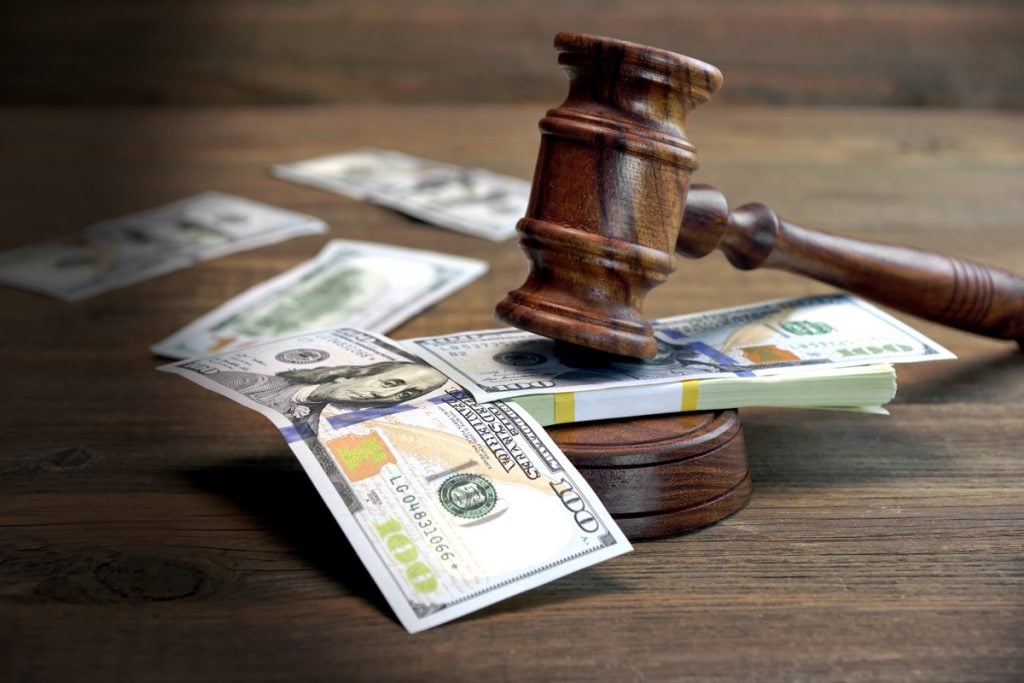A business or businessperson may emerge from months or years of trial-court litigation owing a money judgment to the other side. In the usual scenario, the business or businessperson has been the defendant in a lawsuit and is now a “judgment debtor.” The other side has been the plaintiff and is now the “judgment creditor.”
The defendant (judgment debtor) frequently wants to appeal the judgment because it feels as though either (a) it owes nothing to plaintiff (judgment creditor), (b) owes less than the amount in the judgment, or (c) is owed money by the plaintiff. How does a defendant appeal the judgment while preventing the plaintiff from collecting on the judgment during the appeal?
“Supersedeas laws,” an effort to protect plaintiffs and defendants during appeals.
Here is how “supersedeas laws” play a role. This area of law, a type of procedural law, aims to protect both defendant’s and plaintiff’s economic interests because of an ongoing appeal of the trial-court judgment to courts of appeals.
Supersedeas laws – often called laws for “superseding” a judgment – ensure that the plaintiff has security in the event the defendant’s appeal does not entirely eliminate the money judgment. The law would put the plaintiff at a severe disadvantage if the defendant could dissipate or hide its assets while appealing the judgment, thereby depriving the plaintiff of sufficient assets on which to collect following the appeal. Therefore, supersedeas laws create a security interest in the judgment in the plaintiff’s favor.
The laws also protect a defendant’s assets pending the appeal. The law would put the defendant at a severe disadvantage if the plaintiff could “collect on” (i.e., obtain possession of, or sale for cash proceeds) the defendant’s assets while the appeal was occurring, thereby depriving the defendant of assets in the event the defendant wins the appeal. Therefore, supersedeas laws create a suspension of the plaintiff’s collection activities in the defendant’s favor.

The most common means for superseding a judgment are:
• cash deposits
• supersedeas bonds
• agreements between judgment creditors and judgment debtors
• specialized court-ordered supersedeas arrangements
Cash deposits, and their costs.
The first means for superseding a judgment, and conceptually the easiest to understand, is the cash deposit. The defendant (judgment debtor) may deposit with the trial court’s clerk an amount of money equaling the amount owed by the defendant under the judgment. The clerk works with a bank (usually chosen by the parties) to hold the deposit and to earn a small amount of interest thereon pending the appeal.
Upon the appeal’s conclusion, the cash deposit with interest earned goes back to the defendant (if it is successful on appeal) or potentially goes in whole or in part to the plaintiff (if it is successful on appeal). The parties can argue to the trial judge that the deposit ought to be higher or lower than the actual judgment amount; for special circumstances the trial judgment may so increase or lower the deposit. Typically, though, the trial judge orders that the cash deposit approximate the judgment amount.
The defendant has an opportunity cost with the cash deposit because it is not able to deploy this capital in business operations while the appeal takes place. It loses capital appreciation or business opportunities that the cash deposit could have provided.

Supersedeas bonds, and their costs.
Another means for superseding the judgment is the supersedeas bond. The defendant must provide collateral assets to a bank – such as cash, valuable personal property, or security interests in valuable real estate – so that the bank will issue a letter of credit. The defendant must pay yearly interest charges and miscellaneous fees to the bank issuing the letter of credit. The letter of credit is payable to a bond surety. There are only a few bond sureties in existence, and even fewer banks, that will handle supersedeas-bond transactions because of the unusual risks associated with them. As a general rule, banks and bond sureties steer well clear of transactions involving litigation risks; they do not understand such risks and cannot readily assess their downside exposure from them.
Those few sureties handling supersedeas bonds will write such bonds payable to the plaintiff in the event it succeeds in the appeal; the parties deposit the bond with the court clerk. To maintain the supersedeas bond pending the appeal, the defendant pays yearly fees to the bond surety. Upon the appeal’s conclusion, if the defendant does not use other assets to satisfy the judgment, then the plaintiff can make a demand on the bond surety. The surety would pay the bond amount to the plaintiff and then would make a demand on the letter of credit.
The bank, having paid out on the letter of credit, would obtain value by one means or another from the defendant’s collateral. The bank, for instance, may foreclose on and sale the defendant’s real estate. Or, the bank may transfer cash positions (being held by the bank) from the defendant’s name to the bank’s name.
If the defendant can obtain a letter of credit and a supersedeas bond – which is hard enough to do for amounts approaching or exceeding $1 million – then the defendant has an opportunity cost with the assets used as collateral for the letter of credit backing the supersedeas bond. The defendant is not able to deploy this capital in business operations while the appeal takes place. Accordingly, it loses capital appreciation or business opportunities that the collateral assets could have provided.
Moreover, the defendant expends thousands to millions of dollars in paying the yearly interest charges and miscellaneous fees to the bank and in paying fees to the bond surety. The defendant cannot recover such money from any party in the event it succeeds on appeal; the money is a permanent and serious capital loss.

The plaintiff too can suffer financially from the supersedeas bond. Because of the defendant’s costs in obtaining and maintaining the bond, the defendant may have insufficient assets with which to satisfy the judgment in the event the plaintiff succeeds on appeal. Often, the bond alone will not fully satisfy the judgment amount; the plaintiff must collect on the defendant’s assets beyond those used as collateral. The bond process may have dissipated those other assets.
Other supersedeas.
Another means for superseding money judgments include an agreement between the plaintiff and the defendant – e.g., plaintiff agrees to hold off on collecting the judgment pending appeal if defendant agrees to make some performance to ensure its assets remain in place for potential collection. Or, the parties may seek customized court-ordered supersedeas security, such as the court clerk’s holding title to the defendant’s land pending the appeal, or a court’s ordering the defendant make some performance to ensure its assets remain in place for potential collection.
These other means for supersedeas are rare. Typically the trial judge and the parties will resort to (or, at least, will try to resort to) the cash deposit or the supersedeas bond.
Conclusion.
As surveyed above, supersedeas laws are complex and frequently do not provide as much protection to defendants or to plaintiffs as they would hope. The capital expended by a defendant to obtain supersedeas relief (i.e., cash, or bond collateral) results in opportunity cost to the defendant. This expended capital results also in permanent capital loss; the defendant cannot get back from banks, from bond sureties, or even from a plaintiff the large yearly interest charges and miscellaneous fees that the defendant must pay to maintain a supersedeas bond.
Having put a defendant through the expenses of a cash deposit or bond, the plaintiff has effectively reduced the defendant’s assets on which the plaintiff, if successful on appeal, would like to collect to satisfy the judgment. The plaintiff too, therefore, suffers from inefficiencies surrounding supersedeas relief. James Holmes of Holmes PLLC in Dallas, Texas has studied carefully the downsides to supersedeas laws from both the defendant’s and the plaintiff’s perspectives. He has written extensively on supersedeas reforms in order to remove many of these downsides.
